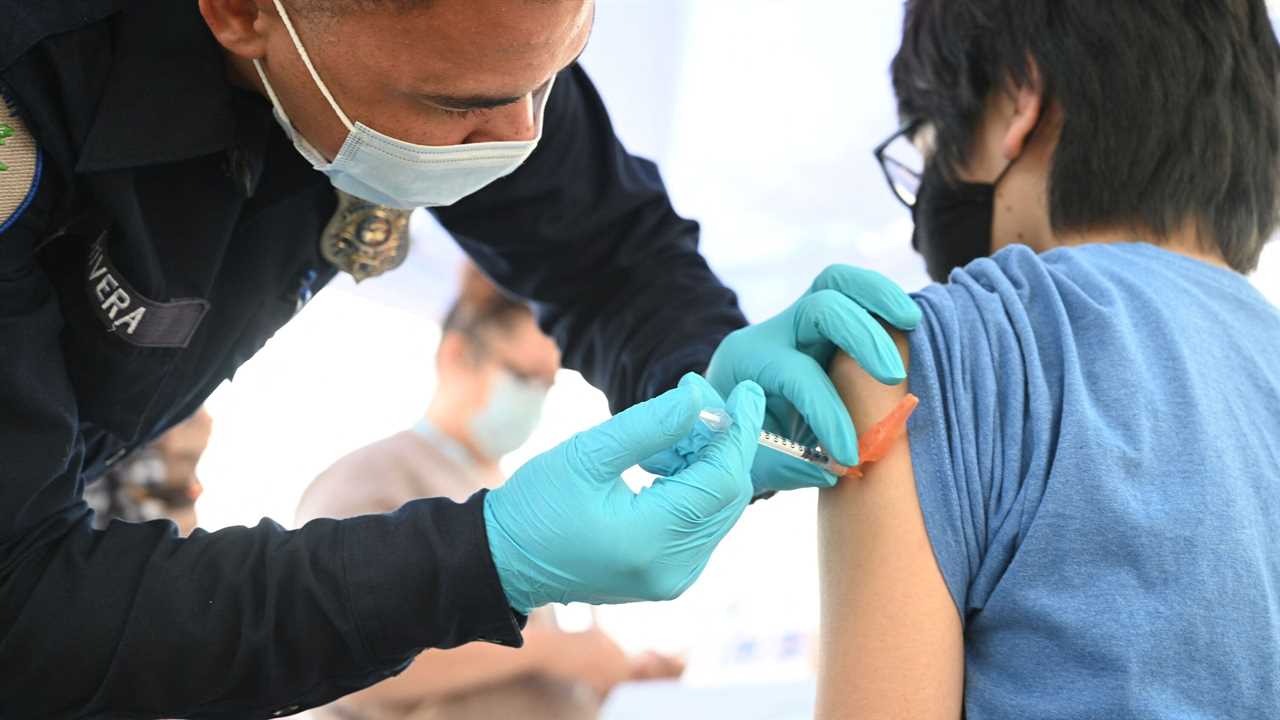
The Centers for Disease Control and Prevention on Tuesday formally endorsed the Pfizer-BioNTech coronavirus vaccine for children aged 5 through 11, a move that will buttress defenses against a possible surge as winter arrives and ease the worries of tens of millions of pandemic-weary parents.
At a meeting earlier in the day, a panel of scientific advisers had unanimously recommended that the vaccine be given to these children. Inoculations could begin as soon as this week.
“Together, with science leading the charge, we have taken another important step forward in our nation’s fight against the virus that causes Covid-19,” Dr. Rochelle Walensky, director of the C.D.C., said in a statement Tuesday night.
The C.D.C.’s endorsement arrives just as Americans prepare for a potentially risky holiday season. Cases in the United States have been falling steadily for weeks, but experts have warned that indoor gatherings may send the rates soaring again. Many Americans seem determined to celebrate; already airlines are bracing for what may be the busiest travel season since the start of the pandemic.
While relatively few of the 29 million children in this age group will be fully immunized a month from now, even partial vaccination will provide some protection against the coronavirus. Every million doses given to children ages 5 to 11 would prevent about 58,000 cases and 226 hospitalizations in that group, according to the C.D.C.
Immunizing these children is expected to prevent about 600,000 new cases from November 2021 to March 2022. And rising immunity may reduce the chances that young children will transmit the virus to vulnerable adults in their families and communities, health officials noted.
Vaccinations of younger children are likely to help keep schools open. Virus outbreaks forced about 2,300 schools to close between early August and October, affecting more than 1.2 million students, according to data presented at the committee meeting.
The pandemic has also stalled routine immunizations, widened education gaps and escalated rates of anxiety and depression among children. “Vaccination of children ages 5 to 11 years will not only help prevent Covid-19 infection and serious consequences of infection in this age group, but will also help children emotionally and socially,” said Dr. Pamela Rockwell, who represents the American Academy of Family Physicians on the C.D.C. panel.
Still, about three in 10 parents say they will definitely not get the vaccine for their 5- to 11-year-old child, according to the most recent poll by the Kaiser Family Foundation. Only about three in 10 parents said they would immunize their child “right away,” a percentage that has barely budged since similar polls in July and September.
Many other parents are eager to see their children vaccinated as quickly as possible. Anticipating the C.D.C.’s decision, the Biden administration has enlisted more than 20,000 pediatricians, family doctors and pharmacies to administer the shots. About 15 million doses are already being shipped to vaccination sites across the country, federal officials said on Monday.
Children ages 5 to 11 will receive one-third of the dose authorized for those 12 and older, and the vaccine will be delivered with smaller needles and packaged in smaller vials to avoid a mix-up with adult doses.
About half of the parents in the Kaiser poll said they worried about mandates that would force them to inoculate their children. Schools in all 50 states already require certain vaccines, but those have full approvals from the F.D.A. Covid vaccines for children have only been given emergency authorizations thus far.
California this month became the first state to say it would require children who attend public and private schools in the state to be immunized as early as next fall — but only after the vaccine is fully approved by the F.D.A. Even in states with mandates, some students may be able to opt out by citing medical reasons or religious beliefs.
Before they met, advisers to the F.D.A. and the C.D.C. were bombarded by thousands of emails offering misinformation about the vaccine and asking the experts to vote against it.
One common objection holds that because children rarely get sick from the virus, the vaccine’s potential harms may outweigh its benefits. But the risk to children is not zero, C.D.C. scientists noted at the meeting.
The Coronavirus Pandemic: Latest Updates
- The virus is surging on the Navajo Nation, despite high vaccination rates.
- Pfizer and Moderna shots are less effective in people with weak immune systems, a study finds.
- U.S. officials urge travelers arriving by land to have travel and vaccine documents ready.
Since the beginning of the pandemic, more than 8,300 children ages 5 to 11 have been hospitalized with Covid, and at least 94 have died. About one-third of the hospitalized children were sick enough to be admitted to intensive care units.
Almost 10 percent of children with mild symptoms may have lingering problems months after the infection has resolved. And at least 2,300 children ages 5 to 11 have developed a condition called multisystem inflammatory syndrome following infection.
The C.D.C.’s advisers also evaluated data on the vaccine’s risks. There was enough information to conclude that the benefits of the vaccine outweighed the risks, even without more long-term safety data, said Dr. Matthew Daley, a senior investigator at Kaiser Permanente Colorado.
“If we wait, we miss the chance to prevent many cases of Covid-19 in this age group, and that includes some very severe cases,” he said.






